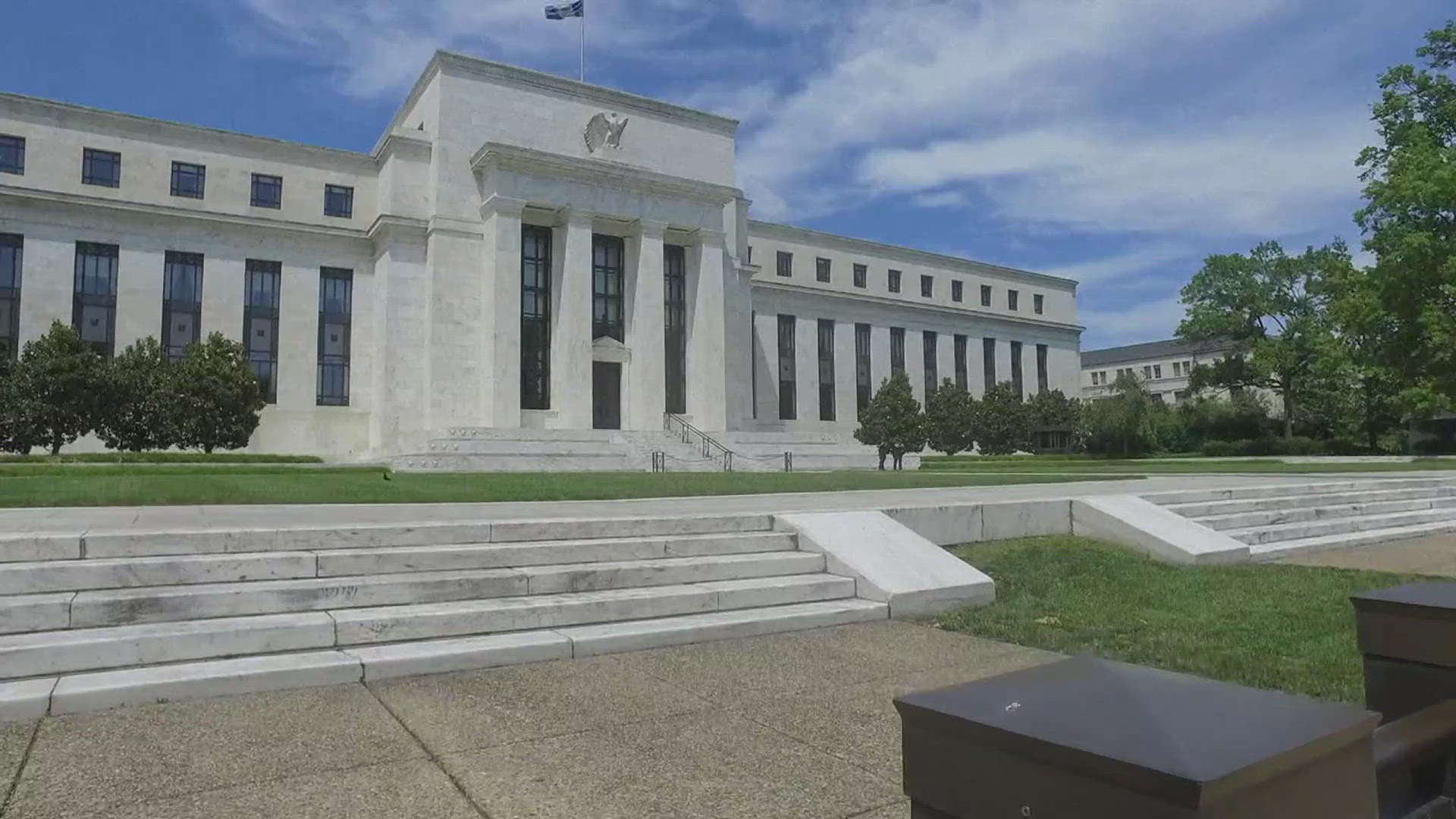MOLINE, Ill. — For much of the past two years, rising interest rates have posed significant challenges for both consumers and businesses. Interest rates on many credit cards, bank loans, auto loans and home mortgages quickly soared to 40-year highs. But with the growing uncertainty over the state of the US economy, when can we expect interest rates to finally start declining?
News 8's Devin Brooks spoke with Mark Grywacheski from the Quad Cities Investment Group to talk about when consumers might start seeing those rates go down.
Devin: What’s the process for lowering interest rates? How does that happen?
Mark: The Federal Reserve manipulates what’s called the fed funds rate. The fed funds rate serves as a basis for many types of consumer and business debt. So, as the fed funds rate is either raised/lowered, you’ll see interest rates on credit cards/bank loans/auto loans/home mortgages also either rise/fall with it.
Over the past two years, the Fed raised the fed funds rate to a 40-year high. The goal was to slow down consumer and business spending by making it more expensive to borrow money: you’re now going to be charged a higher interest rate. A slower pace of spending would help tap the brakes on inflationary pressures.
But with this concern of a severely weakening economy, the Fed is expected to start lowering the fed funds rate. This should start to lower interest rates on consumer/business debt. The goal is to ease some of that financial burden on consumers/businesses and to try and limit the severity of any economic pullback.
Devin: When and how fast do you expect the Federal Reserve to start lowering interest rates?
Mark: Most likely the Fed’s first rate reduction will be at its next scheduled meeting on September 18. But the big unknowns are:
- How aggressive will the Fed lower the fed funds rate at its September meeting? Will it be a minor rate reduction or will it be a large reduction?
- To what extent will the Fed further lower the fed funds rate at its following November and December meetings? The Fed won’t hold any meeting in October.
Because of this sudden concern over the economy, Wall Street expects the Fed to aggressively reduce the fed funds rate at all three meetings in September/November/December.
But, in the meantime, the Fed will be closely watching inflation, the labor market, consumer/business spending and a host of other economic data to provide some clarity on just how severe any economic weakness in the second half of the year will be. If it looks like the economy is heading for recession, the Fed will likely ramp up the speed and aggressiveness in lowering interest rates.
Devin: When might we expect to see lower interest rates on some types of consumer debt such as credit cards or home mortgages?
Mark: On some types of debt, such as home mortgages, we’re already starting to see some lower rates being offered in anticipation of the Federal Reserve starting to lower interest rates. But other types of debt, such as credit cards, are typically slower to respond and might not start to decline until the Fed actually starts to lower interest rates at its September meeting.
___________________________________________
Quad Cities Investment Group is a Registered Investment Adviser. This material is solely for informational purposes. Advisory services are only offered to clients or prospective clients where Quad Cities Investment Group and its representatives are properly licensed or exempt from licensure. Past performance is no guarantee of future returns. Investing involves risk and possible loss of principal capital. No advice may be rendered by Quad Cities Investment Group unless a client service agreement is in place.
Watch more Your Money with Mark segments on News 8's YouTube channel

